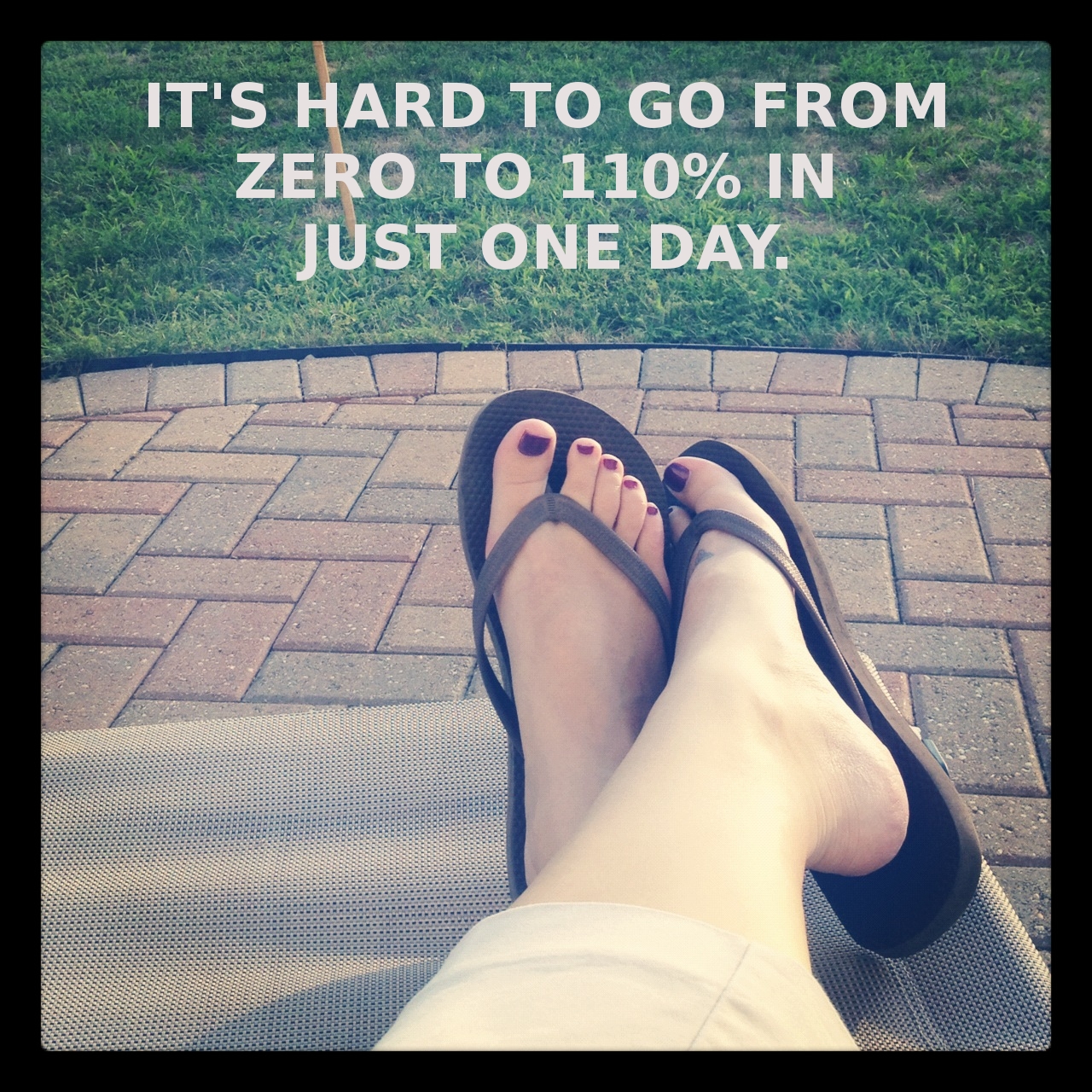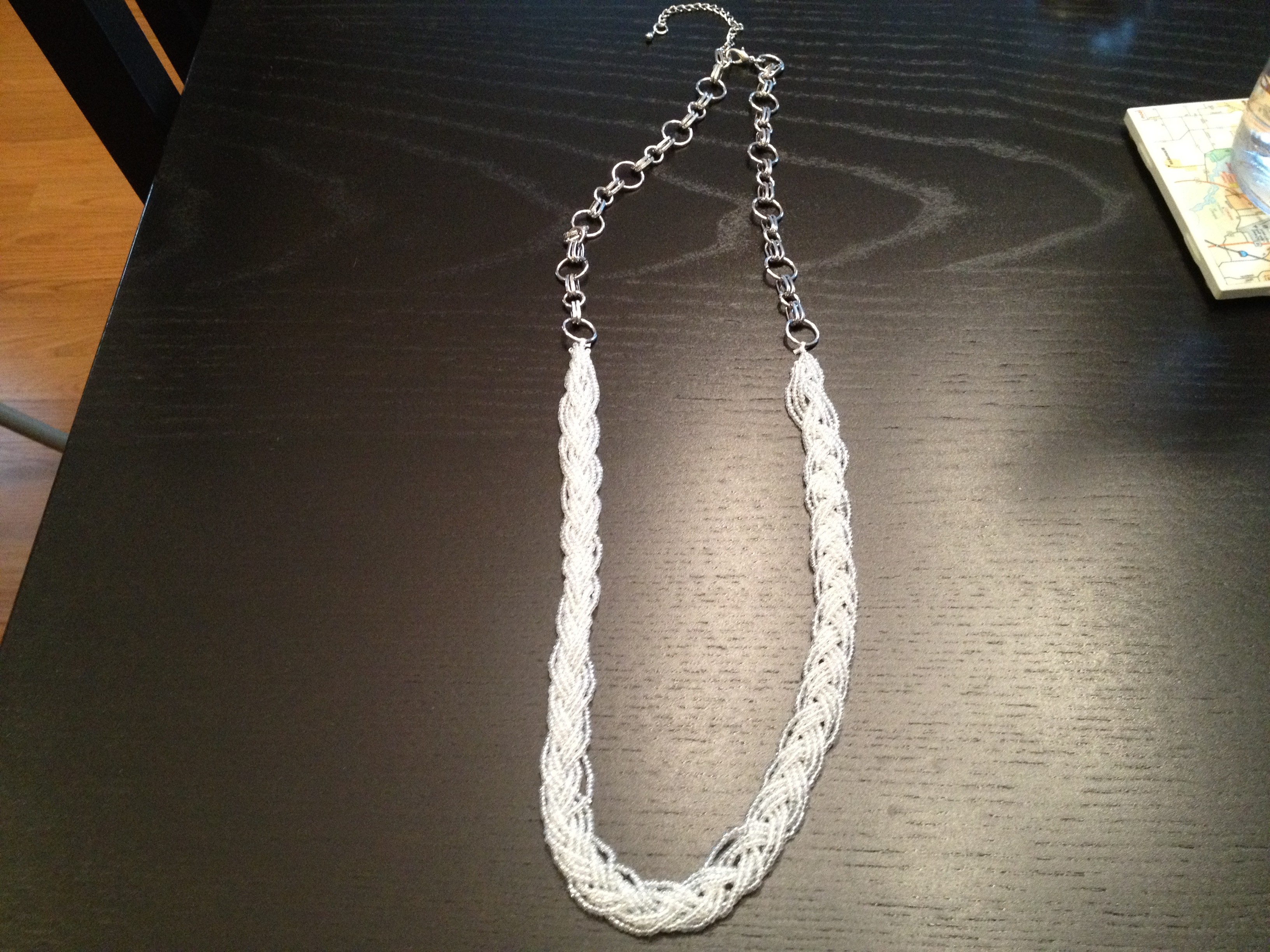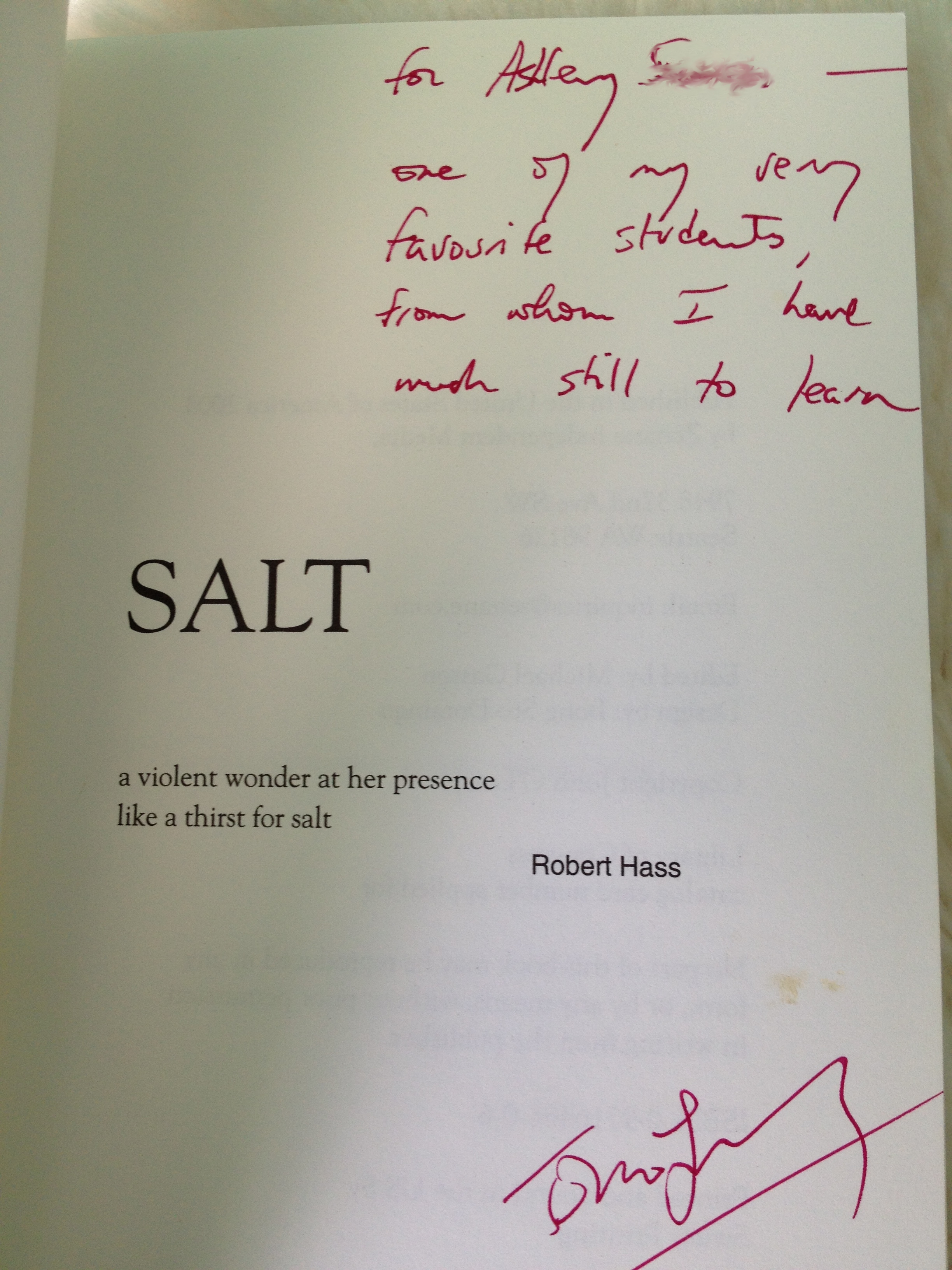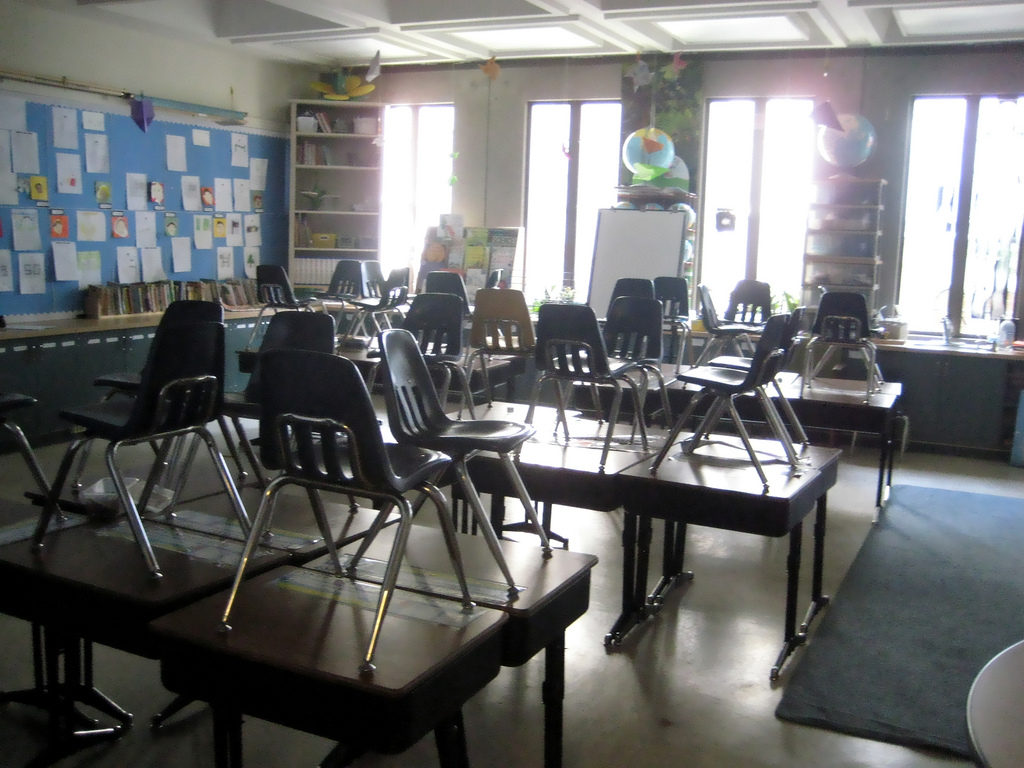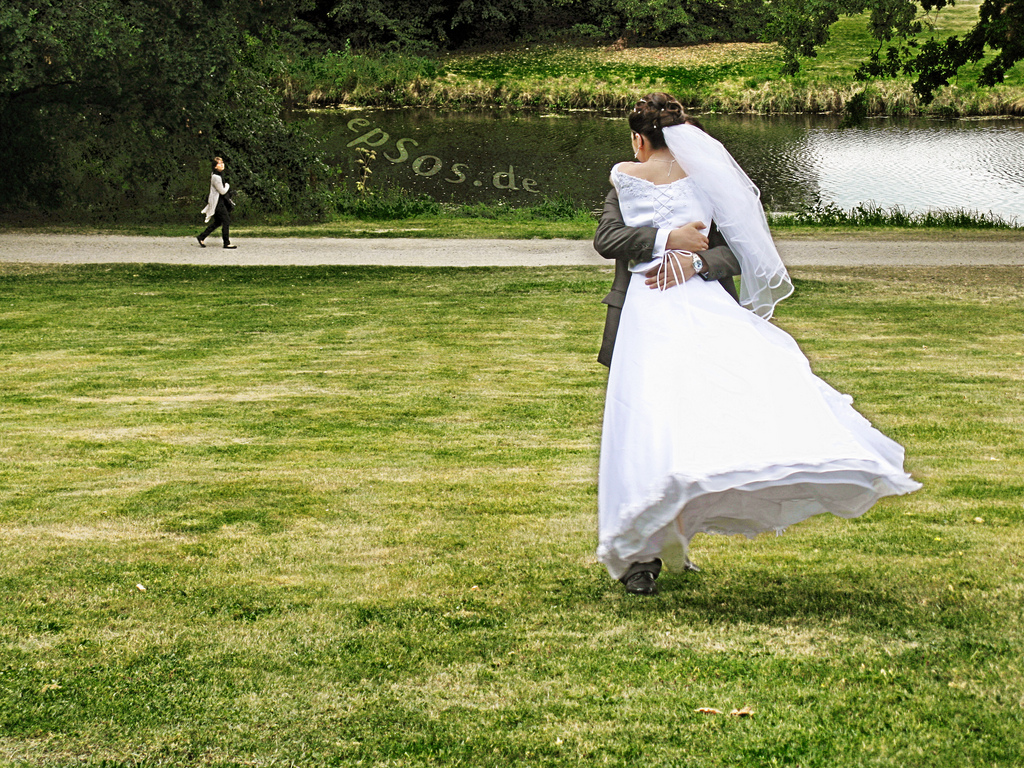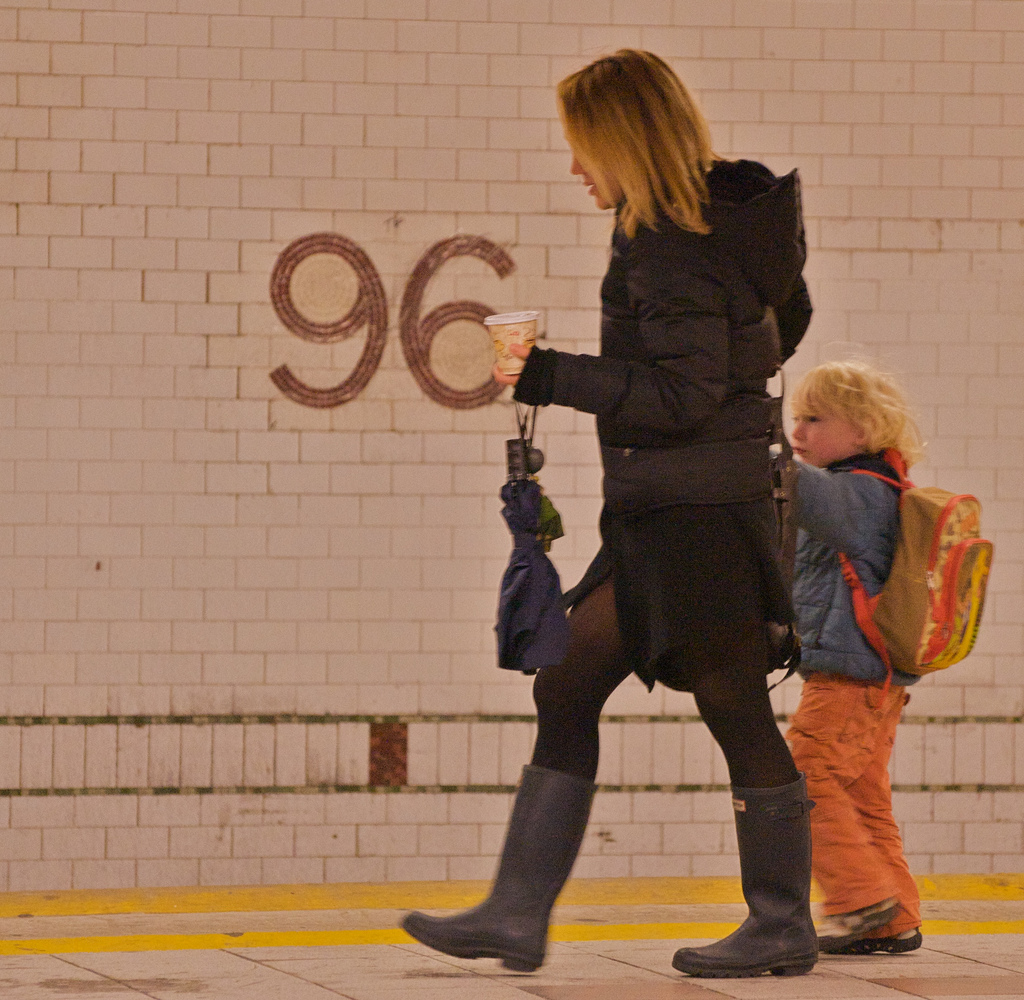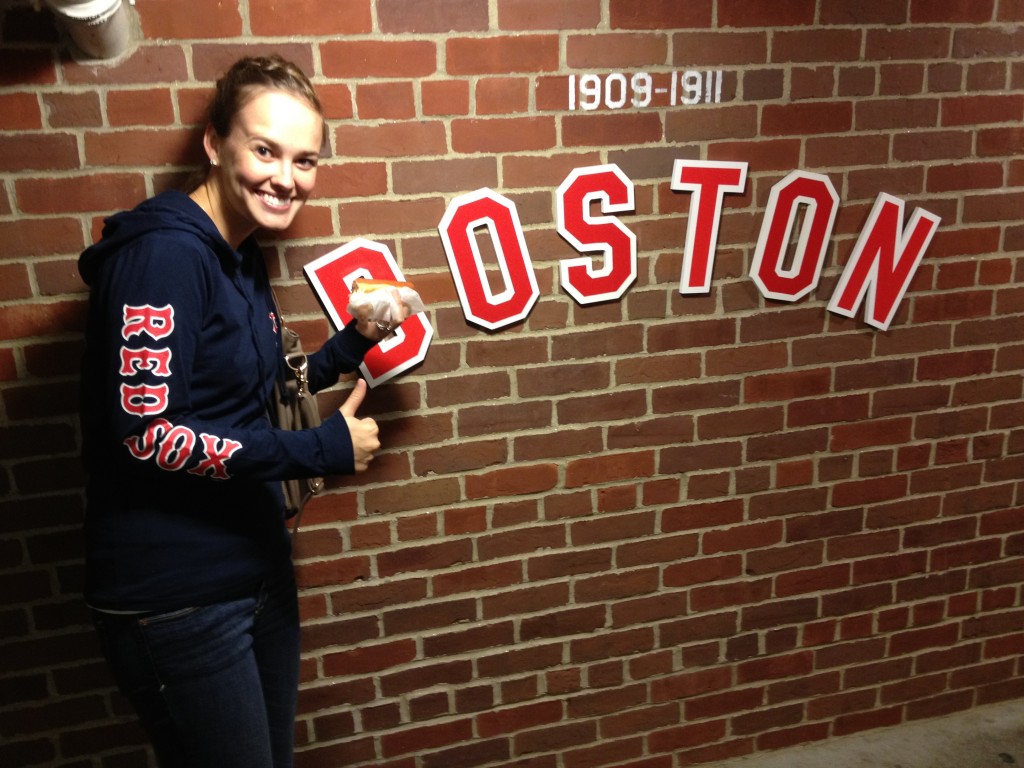
Posts by Ashley:
- Click here for more information on this edition of the carnival, including a more detailed writing prompt.
- Click here for more information on the carnival in general, including ground rules and how to submit.
- Submit your posts here or here.
- One of my posts was featured on BlogHer! It’s Not Can We Have it All, It’s Should We?
- I also had a post about purchasing (and keeping) a CD for each break-up I experienced over at Role/Reboot. My Breakup Ritual
- Last but not least, I had two Teaching Feminism posts over at Care2. Bedtime Story Problems and Victory for GSA in Florida
- I take work home. Every night and every weekend. Last year, I tried not to do this, but that really just translated into 10-12 hour work days because I’d stay late or get in early to get stuff done.
- With the work I take home, I easily work 60-hour work weeks. Sometimes, if I’ve had a lot of meetings or parent phone calls during my prep hour or before/after school, I’m working 80-hour work weeks.
- I have students who hate me, and aren’t afraid to tell me so every day. It’s enough to make me question my self-worth, no matter how hard I try to ignore it.
- I have to answer to a lot of people: students, parents, administrators, other teachers. On any given day, I have to make sure I’m on good terms with as many, if not more, people as my students have teachers.
- I have to take classes and keep track of my credentials in order to keep my certificate active and up-to-date. That is all outside of school hours.
- Fortunately, this is not the case for me, but many teachers are not paid even close to enough to own a home and raise a family, even amidst this recession. Between taking on extra-curricular activities and working summer and second jobs, many teachers don’t get any kind of break at all. Ever. And, oh yea, I also had a summer job that I continue throughout the school year to help make sure we can actually take vacations on our time off.
- Have you seen the news about school shootings? Check out this timeline if you need a reminder of how often this actually does happen. On top of that, we teachers have to deal with fights, bullies, and other violence, as well, not to mention sick, heartbroken, and hungry kids.
- I have to learn about a new set of 120+ kids every year. Every year is a starting over in a way.
Do Politics Belong in the Classroom?
September 10th, 2012I read the Teaching Tolerance blog voraciously. I love everything they publish there, not because I’ve been published there myself, but because it helps me immensely in my classroom. I strive to educate my students not only with the curriculum provided to me, but also about issues that my students will face outside of the classroom.
A recent article on the blog got me thinking, though. In it, Sarah Anderson argues that there is a place for political discussions in the classroom:
It’s true that people usually come into political conversations with their minds already made up; the point of the exchange isn’t so much to gather new information as it is to convince the other person that his way of thinking is incorrect. It can make for uncomfortable situations. But we must have these kinds of discussions in the classroom.
We need to give young people the opportunity to practice. For a lot of people, it is impossible to have a discussion with someone who has opposing political views without getting heated. Others avoid all political talk because they don’t want to deal with the discomfort or possibility of conflict. But we cannot learn from—and about—each other unless we have these conversations. Perhaps our congressional leaders would be more effective if they had received more explicit training in how to have a civil discussion with someone who holds differing political views.
With the election coming up, I find that my students want to talk about politics more than usual. One student wrote a paper about how people should be able to vote at 16, not have to wait until they are 18. Another student wanted to discuss what Republicans were saying about Obama, and still another (in a different class) wanted to discuss what Democrats were saying about Romney.
All of them want to know how I plan to vote.
I was trained to believe that teachers are public figures. It’s part of the reason I don’t write much using my last name, and it’s also the reason I don’t tell my students how I plan to vote this November.
I feel that too many students are faced with too many adults insisting too many things about politics. Whether they are looking at political ads running on television, watching coverage of the conventions, or simply listening to those closest to them talking idly around the dinner table, it can be difficult for students to make up their own minds with so much noise going on around them. I find, also, that many students choose the political party of those they consider role models without needing much more information.
Being one of those role models, I don’t want to push my political views on my students. I know I have a lot of students who look up to me, and I’m hesitant to tell them about my political affiliations because I don’t want them accepting my views as their own without research and critical thought.
While I do think it would be a great idea to incorporate a research project about the election into this year’s curriculum, I’m not sure we’ll have time for that. If I taught history or government, you bet I’d be using this as a way to hone their research skills, but it’s a little more difficult to work into the day in English. As such, I generally refrain from voicing my political views in the classroom.
The bottom line is that I believe my job is to open my students’ minds, not change them. I want them to think about things in a new and different way, not blindly agree with whoever sounds good at the time. That is why I do not engage in political discussions in my classroom. I don’t want them to hear what I have to say and agree without thinking about the issues in their own ways, on their own time.
What about you? Do you believe political discussions have a place in the classroom?
Photo Credit: mrsdkrebs
Apollo 13 and Our Educational System
September 9th, 2012 In 1995, I sat in a movie theater with my parents and my brother as I watched the drama of the Apollo 13 mission unfold on screen. Granted, this was the movie version of the events – starring Tom Hanks, Bill Paxton, Kevin Bacon, Gary Sinise, Ed Harris, and a host of other all-stars – but that didn’t change the fact that I was hooked to the screen, not wanting to even blink and miss a millisecond of the film.
In 1995, I sat in a movie theater with my parents and my brother as I watched the drama of the Apollo 13 mission unfold on screen. Granted, this was the movie version of the events – starring Tom Hanks, Bill Paxton, Kevin Bacon, Gary Sinise, Ed Harris, and a host of other all-stars – but that didn’t change the fact that I was hooked to the screen, not wanting to even blink and miss a millisecond of the film.
Keep in mind, I wasn’t alive when Apollo 13 launched. It was, after all, April of 1970 and I wouldn’t be born for another 14 years. My parents, however, were alive at the time, and I think they took my brother and I to see the movie not only because of our unending interest in the universe, but also because they wanted to see how these true events played out on the screen. In 1995, when the movie was released, I was preparing to enter 6th grade, so I had no clue how the events resolved themselves. I remember turning to my mom and whispering, “They make it out alive, right?” Always the teacher, my mom just shrugged. “I don’t know,” she whispered back. “Keep watching.”
Spoiler alert: They do make it out alive, and the ending of the film is triumphant and hopeful and everything Hollywood would have wanted it to be.
Apollo 13 quickly became one of my favorite films of all time, but it wasn’t the happy ending that drew me in. It was all of the stuff that had to happen to get to the happy ending that intrigued me. My favorite part of the movie is when one of the NASA guys dumps a box of stuff on the table and says, “OK. We need to get this [holding up a part of the spaceship] to fit into the hole for this [holding up another part] using nothing but that [motioning to the stuff he just dumped on the table].” The best part about it was that they figured it out. This was problem solving at its best. I wanted to be one of those problem-solvers in that room when I grew up.
As you can imagine, when I was flipping through channels last night and saw that the movie was on AMC, I turned it on. I hadn’t watched it in a long time, so I was excited to cuddle up with a blanket and watch it again. Aside from being a little bit heartbroken that I am now officially old enough to remember seeing a movie in the theater that is now showing on AMC, the movie was exactly as I remembered it. This time, even knowing the outcome, I was on the edge of my seat, waiting for those three minutes for the ship to make it through the Earth’s atmosphere.
This time, though, I was watching it through a different lens – that of a teacher. Without actually knowing it, in many ways I have actually become one of those problem-solvers in the room. Teaching is constant problem solving; it is always about being able to make something work using limited resources. And, somehow, we always make it happen. In last night’s viewing, though, that scene wasn’t the one that fascinated me. It was one just before that when Ed Harris is talking to another group of problem-solvers, asking them to figure out what the ship is capable of. The room erupts in a chorus of, “The ship wasn’t designed for that!” and “We’ve never tested that before!” Ed Harris stops the nonsense by saying, “I’m not interested in what it was designed to do; I’m interested in what it can do.” Essentially, he was asking these men to think outside of the box and do what it took to figure out a way to get the astronauts home.
In this instance, it wasn’t the problem solving that fascinated me; it was the resistance to it. These men were arguably some of the best and brightest scientists, mathematicians, and engineers that the United States had to offer, and they were resistant to making a piece of equipment do something other than what it was designed to do. Of course, they were reminded that this was a life and death situation and took on the task, but their original reaction was a negative one.
This particularly interests me as an educator. In the 1950’s and onward, there was a huge push in our educational system to emphasize science and math in public schools. In many ways, this was NASA’s doing – during the Cold War, we were afraid that the Russians would make it to the moon before us and, facing a lack of qualified engineers to work in the space program, we needed more and we were hopeful that a push toward math and science in schools would get us there.
However, teaching math and science isn’t the same as teaching critical thinking skills. Sure, the STEM (Science, Technology, Engineering, and Math) classes are all about solving problems, but they aren’t necessarily about thinking outside the box. That’s where the arts – literature, music, art, etc. – come in. By balancing the STEM classes with a dose of creativity, the end result is a well-balanced approach to problem solving. The resistance of the NASA team in Apollo 13 is a classic example of what too much left brain and not enough right brain can do.
This is just an observation of mine, and could be completely false. Furthermore, I’m talking about a film version of actual events, so who knows how true any of it is at all. However, growing up with an engineer/physicist for a father, I’m thinking a lot of this is more true than not. My dad and I are a lot more alike than I sometimes want to admit, but there is a crucial difference between us: he has made a living in the STEM fields and I have made mine in the arts. As such, he tends to approach everything like a science, and I think of a problem more like an art. My childhood is riddled with stories of my dad and I butting heads because I just couldn’t see why he did things the way he did. I preferred my own solutions, which were creative and worked, but were not necessarily full-proof. He preferred to work out all of the options and come to a solution that worked best. To this day, he won’t do anything unless he’s done it “the right way.”
I’m not criticizing my father here; far from it. There have been many times when I wished I had half of his analytical brain power. I’m only using this as an example of how two approaches to problem solving can be very different, and that having a balance between the two is vital, especially in life or death situations. More than that, having many ways of looking at a situation, whether it’s a problem or not, is crucial. Like Ellie Arroway breathlessly uttered in Carl Sagan’s Contact, “They should have sent a poet.” Her scientific mind could analyze and scientifically explain what she was looking at, but a poet’s mind could explain it in a different way. Both minds capture the beauty, but each has a different perspective.
A balance in our educational system is crucial. There is still a push toward STEM fields in our society and, while I do believe that is a good thing, I also believe that we shouldn’t push so far so as to take the art out of living. Sometimes, even the best and brightest need a different perspective.
Photo Credit: dbking
Call for Submissions: Feminist Odyssey Blog Carnival Fourth Edition
September 6th, 2012 Our last blog carnival about Feminism and Education is over, so now it’s time to submit to the next edition! Danielle at from two to one is hosting this month’s carnival, and the theme will be Faith and Feminism. The deadline for submissions is Tuesday, September 25, and the carnival will be posted on Friday, September 28. So get your posts in!
Our last blog carnival about Feminism and Education is over, so now it’s time to submit to the next edition! Danielle at from two to one is hosting this month’s carnival, and the theme will be Faith and Feminism. The deadline for submissions is Tuesday, September 25, and the carnival will be posted on Friday, September 28. So get your posts in!
In case you need it:
That’s it! I can’t wait to read all of the awesome posts out there about Faith and Feminism!
Comments Off on Call for Submissions: Feminist Odyssey Blog Carnival Fourth Edition
Back-To-School Exhaustion
September 2nd, 2012In case you haven’t noticed, I’ve been experiencing a major form of writer’s block lately. I will literally sit in front of my computer some days and stare at WordPress’s “Add New Post” screen, and nothing will come to me.
Today is no exception. I’ve been staring, searching the internet for ideas, and… nothing.
I think a lot of it has to do with simple back-to-school exhaustion. After a long break from school, teachers are expected to drop everything and hit the ground running. However, we often ignore a very simple fact: It’s hard to go from zero to 110% in just one day. And that is often what we’re expected to do.
Personally, I’d be all for year-round schooling. Split up these long vacations and give them to us in shorter chunks around the year. It’s no secret that I am done with summer about halfway through the vacation. I start getting restless and bored, and if I don’t find some kind of project or job to do, I start to lose my mind. I get so bored that I can’t handle it anymore, and I start looking for things to fill my time.
I imagine students are the same way. On top of losing up to a month’s worth of information each summer, they get bored. They start getting restless and getting into things they shouldn’t. Sure, lots of students use the time for productive activities, like taking prep classes, doing summer school work for their fall classes, or getting a job, but it seems that just as many students just get bored and restless.
Even my students this past week were just exhausted. Many of them couldn’t keep their eyes open in class. We’re not only asking teachers to go from zero to 110; students are asked the same thing. And, for them, it’s next to impossible. They cannot switch their schedule at the drop of a hat.
Year-round school seems like a great option. We still get our vacations – we’re not actually in school any more than we are now – but the longest break we get would be three or four weeks long. This prevents summer learning loss, and doesn’t allow students or teachers to get into too much of a “summer routine.”
This sounds a lot like complaining about my schedule, though it’s not. I’m mostly just writing about being exhausted because I’m too exhausted to write about anything else, though I am interested in exploring options when it comes to year-round schooling, because it seems like a great way to both help with the issues that come with breaks that are too long and improve our schools.
I’m sure there are a lot of reasons not to do year-round schooling, too, but on the surface, it does seem like the benefits would be numerous. However, I’ve never gone to school year-round, nor have I taught year-round. Have any of you ever had experience with year-round schooling? What are the benefits and drawbacks?
Photo Credit: me
Comments Off on Back-To-School Exhaustion
Feminist Odyssey Blog Carnival Third Edition: Feminism & Education
August 29th, 2012Welcome to the third edition of the Feminist Odyssey Blog Carnival! I’m excited to be hosting this month, as the topic is something close to my heart – Feminism and Education! As a teacher, this is something I think about almost every day, and I am not alone. This month’s submissions were all fantastic, and bring up a lot of different issues about feminism and education that we need to be thinking about no matter what way we are related to the education process. Without further ado, here are this month’s awesome posts!
Teachers Teaching Feminism
Ileana Jiménez presents Teaching Feminism in High School: Moving from Theory to Action, posted at Feminist Teacher, saying, “This post was originally published at On the Issues. Ileana Jiménez is the founder and sole blogger at Feminist Teacher, Follow her on Twitter.” In this post, Ileana discusses connecting schools with feminist theory and action.
Ashley Lauren presents What Matters is How I Decide to See Every Day and I Earn My Summers Off, posted at Small Strokes, saying, “At the end of every summer, I write something about going back to school. This year, I am determined to remain positive. However, if I do complain about going back after a long, relaxing summer, I’m entitled to do so.”
LeAnn Stokes presents I Assume You Can Do Anything, posted at Standing at the Intersection, saying, “This blog displays what I love: teachable moments for both me and my students.” The post itself contains one of the post powerful statements about education I’ve ever read: “These were students who were told by their teachers that they would never ever be able to handle this type academia, and through feminism in their education they were able to redefine themselves as capable students and, for some, even as feminists.”
Emily Heroy presents Why Teaching May Put More Women Into Public Office posted at Bending Toward The Sun. In this quick hit, Emily questions whether or not good female teachers should be taken away from the classroom to join public office.
Terri Givens presents Teaching in a time of division, posted at Diverse Thoughts. As a college professor, Terri discusses how to create a safe space for opinions in the classroom by setting a good example. No easy task!
Students Speak Out
Emily Atwood presents How I Get My Education Fix Through Feminism, posted at Diary of an Accident Prone Feminist. Emily is currently a student, but has found a love of educating people about feminism.
Neelakantha presents Should Youth Join In Active Politics? posted at Business News This Week, saying, “Yes, youth should join active politics, to change the way, political system is functioning today, and to give a better future, to the coming generations.”
Education and the Media
Debbi Pless presents Act Like Peggy, Dress Like Joan. Don’t Be Betty. posted at Kiss My Wonder Woman!, saying, “As I am working on my grad degree to eventually teach media analysis, this is something I think about. How do you teach feminism with media when media is so often the problem?”
Carrie Nelson presents Sight, sound, and a push for feminist film education, posted at Don’t Be Afraid to Open Your Eyes. This post adeptly combines three of the most important aspects of our society: feminism, education, and movies, and shows us just how important all three are.
Education from Society
Hila Shachar presents On Feminism: Being “Nice” and On Feminism: Brave New World?, posted at le projet d’amour. These two posts discuss how, as women, we are taught to be nice and buy things, respectively, and how we should fight against that type of education.
Angel Garden presents Bullying Comparitors – thanks very much!, posted at archangel’s. In this post, Angel discusses how her daughter was bullied, and what the school is (or isn’t) doing about it.
Avital Norman Nathman presents Our Reality, posted at The Mamafesto. Here, Avital talks about a project she is working on with Carrie Nelson about teen pregnancy and giving teen mothers a voice.
CharmingElements.com presents Women’s Struggle – Charming Elements.com posted at Charmingelements.com, saying, “Women’s Struggle With Old Cultural Beliefs.” This post discusses old cultural beliefs and how women can resist them by getting a good education.
Class Dismissed
That’s all, folks! Thanks for joining us for this awesome third edition of the Feminist Odyssey Blog Carnival! Look for information about next month’s carnival, hosted by Danielle at from two to one on the topic of Faith and Feminism. Start writing your posts now, and look for information on how to submit them here.
Looking for even more about feminism and education? Check out my series at Care2: Teaching Feminism.
Comments Off on Feminist Odyssey Blog Carnival Third Edition: Feminism & Education
I Survived Week 1!
August 26th, 2012My first full week of school is complete. I even already have an essay that is piled up, waiting to be graded. And here I am, avoiding grading the essays, which means school has OFFICIALLY started!
I haven’t been writing here at all this week, which you kind of knew was coming. I have been writing some other places, though! Isn’t that exciting?
So if you’ve been missing me, go check out those posts! This week will be the first that our routine – complete with after school obligations – is going to show its ugly head, so I’m hoping to squeeze in some more writing time. It’s on the calendar (Yes, I need to put writing time on the calendar! I do it for workouts, too…), so hopefully that will make me stick to my schedule.
Oh! And don’t forget the Feminist Odyssey Blog Carnival is coming up this Wednesday! Horray!
Until next time, enjoy some pictures of jewelry I’ve been making – a necklace, a bracelet, and a daisy chain:
Featured Image Credit: Ben+Sam, other images are mine
Comments Off on I Survived Week 1!
Rest in Peace, John O’Leary – A True Teacher and Poet
August 19th, 2012I was deeply saddened yesterday to learn of the passing of my very first undergrad English professer, John O’Leary. He was with his son on a boat when it capsized. His son made it back, but he did not.
John O’Leary was a strange and wonderful man. He had unruly, curly red hair and a just as unruly and curly beard. My first English class on campus was with him, and was titled The Literature of Solitude. I wasn’t a fan of many of the books we read, but I was a huge fan of him, so going to class was always something I looked forward to. On the first day of class, he wandered in looking a bit disheveled. He told us that he had fallen asleep under a tree on the quad before class started. For the entire duration of class, we watched a bug that had gotten caught in his hair twist itself up and uncurl itself, trying to free itself from the strand of hair. O’Leary never noticed it was there.
I enjoyed that class so much that, come May Term (a term in which you take one class every day for one month) my freshman year, I took his Creative Writing 101 class. We spent hours talking about and writing poetry. I always fancied myself a short story writer, but O’Leary seemed impressed with my poetry, and that inspired me to go on to take more poetry classes at the university and, eventually, graduate with a specialization in creative writing along with my English Literature degree.

I’ll never forget the first thing he told us about poetry as we were all sprawled out on couches in the student center’s meeting room (it was a truly unique class, indeed). He said, “The beautiful thing about poetry is that you can compose it anywhere, even alone in the middle of the ocean.” In light of these recent events, those words haunt me, but it is comforting to know that poetry was with him until the very end.
Toward the end of my freshman year, he released a book of broken sonnets titled SALT. He held a poetry reading and book signing on campus. It was the first one of both I’d ever been to.
He signed my book, and of course I’ve kept it all these years. He wrote:
for Ashley S—-
one of my very favorite students, from whom I have much still to learn
For all I know, he wrote that on everyone’s book, but it’s still not something one forgets easily.
He was a great and interesting man, and a wonderful poet. He will be greatly missed. In closing, I’ll leave you with my very favorite poem from SALT, “LVI”:
I actually know damn all
about it, but I’ve heard
that every word in Arabic
has at least three basicmeanings; it means
what it normally means; it means
its complete opposite;
and every single wordhas something to do
with a camel.
So here; I mean what I say;
I mean what I do not say;and every single word
has something to do with you.
Finishing the Kitchen!
August 18th, 2012I am busy, busy, busy. Between writing for Care2 and trying to get some other writing done for a few other sites, I have just about used up all of my free time outside of school this week. Oh yea, and school has started! I meet my new students on Monday! This is all very exciting, but also a lot of work.
My goal during the school year is to post here at least three times a week, so don’t worry! I’ll be back! Now, though, I need to spend the weekend and beginning part of next week focused on starting my school year off right. So I thought I’d share some pictures of our new, beautiful appliances with you. 
Check out the pics below. I even included a “before” one (with the bisque appliances). What do you think?
And don’t forget, the deadline for the third edition of the Feminist Odyssey Blog Carnival is coming up on Wednesday! Submit your posts now!
I Earn My Summers Off
August 16th, 2012It’s the first day back at school today. Two days of teacher institute, then a full week of classes right off the bat.
Except, according to friends and family who work year-round, I’m not supposed to talk about this. Well, I can talk about it, as long as I don’t complain about it. Because some people who have “real jobs” and “real responsibilities” all year don’t even get close to that much vacation and we should really appreciate the time we have off and stop complaining.
I hear this stuff every year. Every August, someone comments about how nice it must be not to have a “real job,” or to not have to work for years and years just to earn a few weeks of vacation. All I have to do is answer the inevitable “When do you start?” question and someone from across the room has to yell: “Hey! No complaining from you! Some of us have to work year-round!”
Except I wasn’t complaining. I was just stating that we start school on August 16. If you had bothered to talk to me even a little bit, you would know that I actually hate the second half of summer vacation; I believe that 6 weeks is more than enough R&R time and, around the first week of July, I’m itching to get back into the routine, the intellectual stimulation, and the excuse to get out of the house every day the school year provides for me. This has been true for me every year, even this year when half of June was taken up moving out of our apartment and into our new house. Even with all of that going on, 6 weeks was more than enough. Heck, 4 weeks would have been plenty. Even after 2 weeks at winter break, I’m ready to start again.
That’s just my personal opinion, though, and I know a lot of people who whine a little bit about having to set their alarm clocks again. Seriously, though, pretty much everyone whines at least a little bit when they have to get up for work after even a few days of not doing so. Maybe I should tell people not to complain on Monday when they go back to work, considering they didn’t have to do any grading or lesson planning over the weekends and they should be grateful for the fact that they can leave their work at work.
Saying teachers should be grateful for their summer breaks is like saying that teachers don’t work as hard as the rest of society because they have summers off. That’s an interesting trope that rears its ugly head in the media, especially around this time of year. Allow me to catalogue just a few of the things I – and most teachers – do/face during the time between vacations:
I’m not asking for more pay or more time off. Of course, if you ask me to deal with all of this for longer than the 9.5 months out of the year we are in school, I’d ask to be paid for the extra time I put in, but that’s neither here nor there. I reap more benefits in my job than a paycheck or insurance package or vacation time can account for. I get to see kids grow and change; I get to make their brains hurt; I get to laugh, every single day. I get to see them overcome some of the most difficult challenges of their young lives and come out the other side better people. I get to get them to think. It’s because of all this and more that I go back to teaching every year, every day.
But I work so hard during the school year that I truly believe I’ve earned my summer vacation. If you add up all the hours of a 9-5 job and a teaching job, I bet they come pretty close. I’m not complaining about going back but, if I did, I think I’ve earned a little bit of that, too.
Photo Credit: -Marlith-
I’m Not Judging You
August 15th, 2012
 I’ve been musing a bit about last names recently, probably because I’m gearing up for another school year where I will be referred to solely as my last name for the next nine months. I actually enjoy this. It allows me to code-switch between my home life, where I am referred to as Ashley, and my school life, where I am referred to as Miss, Ms. S, or just my last name with no prefix attached. It’s almost like I get to be two different people, and that’s pretty cool, because it accurately describes what I do during the year; I’m one person when I teach, another when I write, and yet another while I’m out with friends or family.
I’ve been musing a bit about last names recently, probably because I’m gearing up for another school year where I will be referred to solely as my last name for the next nine months. I actually enjoy this. It allows me to code-switch between my home life, where I am referred to as Ashley, and my school life, where I am referred to as Miss, Ms. S, or just my last name with no prefix attached. It’s almost like I get to be two different people, and that’s pretty cool, because it accurately describes what I do during the year; I’m one person when I teach, another when I write, and yet another while I’m out with friends or family.
However, as is the case with every school year – the summer months being popular for weddings and all – I know a lot of women who will be coming back to school with a new name. I will greet them, congratulate them on their new marriages, and ask whether or not they changed their names. Even though I know the answer to the question, I still pose it that way, not because I am hoping they changed their minds, but because they can change their minds, if they want to, and asking “What’s the new name?” only assumes they can’t.
When women tell me they have decided to change their names, many do it with the same sheepishness most people had when I’d tell them I was a vegetarian. “Oh, good for you! I don’t eat that much meat,” they’d say, as they chomped down on a bacon double cheeseburger. “It’s OK if you do,” I’d say, “I’m not judging you.” Similarly, women who have changed their names, especially if they know I’ve kept mine, generally respond to my question with feigned disappointment. “Yea,” they sigh, and then they immediately give me a reason why they made the decision they did.
To all of the women out there who change your names when you get married, I am not judging you. You made a decision that was right for you. I made the one that was right for me. These decisions don’t have a thing to do with one another.
Some argue that there is no such thing as a neutral choice, that all choices we make play into some system of classism, sexism, racism, homophobia, etc. simply by virtue of the way we’ve been raised. Furthermore, it is a commonly held belief that, whatever choice we, ourselves, make is a way of showing the world how we think it should function. Our choices sometimes speak for themselves. “I’ve made the right choice,” they say, “and if you don’t choose to do the same thing I did, you are wrong.”
I am of the mind that there are no wrong choices, just different ones. I am not going to tell someone not to chow down on that bacon double cheeseburger if it makes them happy, and I am not going to tell someone to keep their name if they don’t feel it’s the right choice for them. Sure, chomping on some red meat can mean you don’t care about how that meat got to your table, or about how many hormones were pumped into it to get it nice and juicy for you, or that you haven’t thought about any of these things at all. It can also mean that you know about all of these things, and still made the decision to eat it anyway after weighing the circumstances. What do I care? It’s your body. Likewise, changing your name when you get married can mean that you’ve bought into the patriarchal notion that a woman should take a man’s name, or it can mean that you want children and you want the whole family to have the same name, or it can mean that you didn’t think much about it at all or that you did think about it ad nauseum and came to the conclusion that it was the best choice for you and your family.
What do I care? It’s your name. What you choose to do with it is your choice to make. I don’t need a reason, and I don’t need you to pretend to be disappointed about the shift. I am not judging you.
Photo Credit: simply everything
Why Did I Keep My Last Name If I Don’t Use It?
August 14th, 2012Many people who learn that I kept my last name when I got married need a reason. They often ask why I made that decision or look at me with confusion. Some assume that I kept it because I am a writer, and I usually let people think that. After all, “I never dreamed of having articles or books published or earning advanced degrees as Ashley Lauren SomeoneElse’sName, but I did dream of seeing Ashley Lauren S___ on bookshelves and diplomas.”
The truth is, though, that here and elsewhere – even in that post, and in many others about my last name – I don’t actually use it. Now that I won’t be publishing a book anytime soon, I won’t be able to see my name on the spine of a book as I walk through the bookshelves at the local bookstore, as I dreamed about doing ever since I was a little girl. Sure, I use my last name in some places – it sort of depends on the piece, the venue, and what else people can find that I’ve written for said venue. Sometimes it just depends on how cautious I’m feeling at any given time. Sometimes, it’s just a matter of precedent; if I’ve published something there before, I keep the name I used the first time.
So, if I’m not going to use my name to publish articles, why did I keep it?
My decision not to use my last name on the internet more than necessary is more out of habit than anything else. I was raised with a very Midwestern sense of fear of the internet that, with every awesome person I meet in real life having known only through the internet, is slowly going away. (I’m not actually sure that this fear is Midwestern, but I have been told that it is on numerous occasions.) I started out calling myself Ashley Lauren (Lauren is my middle name, in case you didn’t know, and I actually do use it most of the time, even when I use my last name as well) and it just stuck. Couple that with the fact that I have students who are better at Googling things than I could ever even hope to be, and I’ve left my name right where it is.
However, I didn’t really keep my name because of my writing. Being a writer is one of the multitude of reasons I have for keeping my name, among them: “It was my name for 26 years; I was sort of attached to it,” or “I’ve just always known I wanted to keep it.” When you add all of it up, I kept my name for me. Among a plethora of things I was afraid I would have to give up when I got married (some, like moving to the city, I had to give up and others, like my clothes shopping sprees, I didn’t), my name wasn’t going to be one of them.
Writer or not, if I had wanted to change my name when I got married, I would have done it. Likewise, though I use lots of reasons to justify my keeping my name, there are just as many reasons I could use to justify changing it. It all boiled down to what I wanted to do and what I felt was right, above anything else.
Photo Credit: epSos.de
Teaching Tolerance: After Tragedy, Rally Students for Change
August 10th, 2012I’m on the Teaching Tolerance blog today, talking about what you can say to your students after a tragedy strikes. Unfortunately, in my six short years of teaching, this is already becoming something I need to think about every year. Check it out:
The day after Valentine’s Day 2008, I watched my 1st period students file into the room. They were uncharacteristically quiet. When the bell rang, they all looked at me, waiting to hear how I might make sense of the previous night’s tragedy when Steven Philip Kazmierczak opened fire in Cole Hall on Northern Illinois University’s campus, shooting 21 people and killing five.
It was my second year of teaching, and already this sort of thing was becoming routine. The year before, we watched the deadliest school shooting in U.S. history unfold at Virginia Tech. In 1999, when I was a high school freshman, I’m sure my own teachers were similarly daunted by classrooms full of wide-eyed students after the Columbine High School shooting, more than 900 miles away.
The NIU shooting was different, though; it was practically in our backyard. This was no longer the sort of thing that happened somewhere else. My students had siblings on campus. I had several close friends there. We were all exhausted from a long night of phone calls, text messages and watching the news for updates.
I looked at my students. I wanted to help them understand why someone would do something so heinous, but I didn’t understand it myself. I took a deep breath and said the first thing that came to mind: “It’s not fair. You go about your lives and you never know what might happen or if you’re going to be in the wrong place at the wrong time. School is a place where you are supposed to feel safe, and now that has been taken away from you.”
Read the rest of the article at Teaching Tolerance.
I’m curious: how do you handle tragedies with your students or your children? What do you say to them to either ease their minds or help them make positive out of the negative?
Comments Off on Teaching Tolerance: After Tragedy, Rally Students for Change
Musings of a Dog Lover
August 9th, 2012It is (finally) a relatively cool, cloudy day in Chicagoland. I’m spending some quality time with my coffee, a book, and Penny on the couch this morning and it has me a bit pensive. I’m thinking about dogs today, and all they ways they wriggle their ways into our lives and change them forever.
Penny generally wakes me up in the mornings. Tim will open the door and I’ll hear her bounding up the stairs on her mad dash into the bedroom. I’ll say, “Peeeenny!” and she’ll jump up on top of me, in the bed, without fail. I never thought I’d love an animal so much that I actually look forward to her waking me up. But I do.
We call Penny a street dog because she was a stray before she was rescued from a kill shelter and brought to Illinois, but you wouldn’t know it if you ever met her. She cuddles and doesn’t bark very much and she loves to play. Playing is probably her favorite thing next to eating. Her eating habits are the only thing she has left from her stray dog days. She eats voraciously, and is always begging for a treat. You know that commercial where the kid asks his mom for a treat and then begs, “Pleeeeeeeeeeeeeeeeeeeeeeeeeeeaaaaaaaaase?!” throughout the grocery store? Yea, that’s our dog.
Whenever we open a crinkly bag, no matter what’s in it and no matter how far away she is, she’ll come running and stand at our feet, ears perked up and eyes wide. She has begging down. It’s an art form for her. Somehow, she makes herself look cuter as she begs, and it works. I’m a sucker for it every time. I know we should try to stop her from begging, especially from guests, but it’s so cute. (You can see a picture of her begging on this post. It’s really cute, right?) Not only that, it’s her instinct.
They say that getting a dog is a good test for having kids. I used to think this meant that it’s a good way to see how you and your partner will parent together. That may be true, but I think the real thing dogs teach you is that it is actually possible to love something or someone so much you feel like you’ll burst. All those things you thought would be so annoying – being woken up at all hours of the morning, cleaning up accidents, making late night trips to the doctor, being begged for food – none of them can compare to the love and companionship you get from inviting a dog into your home.
All of this thinking has come about not only because Penny and I are logging some good cuddle time, but because I read this post this morning about a man who loves his aging dog so much, he’ll take him into the lake to ease his arthritis and help him fall asleep. Every day. I get teary-eyed just thinking about it.
Do you have a dog in your life? I’d love to get some great dog stories in the comments!
Comments Off on Musings of a Dog Lover
What Matters is How I Decide to See Every Day
August 7th, 2012This is my last full week of summer break. My school packet has arrived in my mailbox. I know what I’m teaching next year. (Two sections of English 2 Honors means double the quest papers! Yay! And three sections of College Prep English 2 makes for a great balance!) I know where my assigned parking spot is. Our institute days are next Thursday and Friday, and we kick off the year with a bonafide, full-day and a full week of school.
Usually this time of the year is bittersweet for me. I’ve spent some quality time at the pool, reading some great books, and I’ve logged some hours in front of the computer typing up some important articles. I’ve usually spent some time thinking about the really deep issues I’ve been facing during the year, and coming to some sort of conclusions. Last year, I was faced with the decision of whether or not to go back to teaching at all. I had spent the summer trying my hand at writing full-time, only to discover that it wasn’t exactly what I wanted. What I wanted, I had decided, was to teach like my hair was on fire:
Because teaching isn’t just imparting knowledge, it’s listening, asking the right questions, letting someone cry, laughing your butt off. All of these, every day. With style, poise, and verve.
So little of teaching is actually imparting knowledge, which is why our test-taking culture has got it all wrong. And it’s also why the media has it wrong, and, subsequently, why so many other people have it wrong. All they can look at is the quantitative measure of test scores; they can’t seem to see the qualitative value of what we do every day.
One of my favorite professors told us all the time to teach like your hair is on fire. My hair hasn’t been on fire for a long time, but I think it’s time to set the blaze. (Metaphorically, of course.)
It’s no accident, then, that last school year, I had one of the best years of my life. Sure, I won the student lottery last year, but I think there’s more to it than that. I told myself I’d have a great year – I psyched myself up for it – and I did.
This year, I’ve gone through a very similar identity crisis. After almost a full year of working on a book, I had to give it up, and in the process, I came to almost the exact same realization that I always come to: I love my life, I love what I do, and I don’t have to prove anything to anyone else.
Except then I realized that life doesn’t, in fact, end when you turn 30, or even when you have kids. And I realized that, if this blog, my work at GAB and Care2, my list of work published on other sites isn’t proof of being a writer, what is? And I looked back on notes my students wrote me at the end of the school year. “Thank you for having such an impact on my life.” “Thank you for teaching me that bullies don’t carry the weight I think they do.” “Sophomore year was awkward and awful, just like you said it would be, but being able to come to your class for an hour a day was a relief.”
All of these things I’ve done? All of this writing and activism and teaching and their intersection?
This is worthwhile. This is an accomplishment.
Then it hit me. Writing isn’t a profession. It’s a way of life. It’s a way of seeing the world and analyzing what is in front of you. It’s a philosophy of life and teaching. It’s more than a book; it’s a lifestyle. And I’m living it.
Writing and teaching are lifestyles, not professions. And it’s no wonder I’ve come to them both; they both fill me with the same sense of purpose and the same outlet for what I believe in: people. I believe in the core of my being that we need to invest in people if we are to succeed.
This year, our entire curriculum has been rewritten. We’re starting from scratch with the inspiration of new educational reforms to guide us. At first, I was worried that this year wouldn’t be as great as last year because of this. How will I hook my students if I can’t teach them Fahrenheit 451? How will I pique their interest if I can’t share lessons about reality TV with them? How will I ever get to know my students this year as well as I got to know them last year?
Here’s the thing, though. It’s not about what I teach or the students to whom I teach it. Last year wasn’t my only successful year; it was just a great year after a not-so-great one. The constant among all of those good years, no matter what I teach, has been me. After all, “teaching isn’t just imparting knowledge, it’s listening, asking the right questions, letting someone cry, laughing your butt off. All of these, every day. With style, poise, and verve.” It doesn’t matter what or whom I teach. What matters is how I do it, and how I decide to see each day.
And I’ve decided. This year, without a doubt, is going to be another great year.
Photo Credit: Ed Yourdon
Comments Off on What Matters is How I Decide to See Every Day
Slaying Dragons
August 6th, 2012When I saw this cartoon on The New Yorker‘s Tumblr page, I had to laugh. Like many people (I imagine. Maybe this is just me.), most of the times I come across a New Yorker cartoon, my first reaction is to think, Wow, that’s smart! instead of, HILARIOUS! I think that’s probably the point. However, this one was laugh-out-loud funny. Mostly because it’s true, in our relationship, at least.
Tim has a habit of doing really big things as either romantic gestures or as a way to help out around the house. For example, two of the toilets in our house were leaking a little bit when we moved in. This, as you can imagine, was a problem, but not a huge deal. Neither of us are particularly handy, but Tim wanted to learn, so he went to the hardware store, asked some questions, bought something to install in the toilet that was supposed to take him five minutes. It took him three hours.
Meanwhile, I’ve been cooking, washing dishes, vacuuming, dusting, making the bed, cleaning the kitchen – all of those little things that totally eat up your day when you have to do them all together. Every time I turned around, there was another mess from another handyman thing Tim wanted to learn how to do. His part of the chores also were going undone because he didn’t have time to do them. Because he was working on bigger projects around the house.
Tim thinks that, because he is doing these big things around the house, or slaying the dragons, if you will, he is chipping in as much as if he had cleaned the bathrooms. I tend to think that it’s the smaller things that make a space livable, and that they need to get done before anything else.
I’m not sure if this is a men are from Mars, women are from Venus moment, but it does seem as if Tim and I are stereotypically different in this way. I relish the small stuff: chores done, flowers brought home, an unexpected “I love you.” Tim tends to think those things are useless and would rather go big or go home: man projects, extravagant date nights, dragons slayed. (Though, according to him, he is NOT a centipede hunter. Speaking of dragons.)
What do you think? Is your relationship like this at all? Or is this just us?
Comments Off on Slaying Dragons
When it Comes to Buying a House, Size Matters
August 3rd, 2012Size was a huge consideration for us when we were looking for a house. Unsure if we would ever want to have children, we wanted to be sure that whatever house we chose was the right size for us. We wanted a house that was big enough to house a growing family, but small enough that it wouldn’t be too much space should we decide that we didn’t want to add children to the mix.
We looked at a lot of huge houses. HUGE. Like 2500 square feet, 3-car garage, finished basement huge. There was just something about those houses that didn’t feel right to us. Sure, they were beautiful, and most of them were state-of-the-art when it came to brand new appliances, hardwood floors, granite countertops, etc. We just weren’t sure we wanted to take on that kind of space. Even with one or two kids, those houses would remain massive, and we were much happier thinking about a cozier space.
Perhaps this was due to the fact that we had lived in a two-bedroom, one-bathroom apartment for two years before buying a house. We had gotten used to not having much space. A big part of us liked not having much space, I think. Learning to live in a smaller space helped us grow closer and learn a lot of things about each other. It also took way less time to clean.
When we moved into the house, it took us a while to adjust. We tried keeping the same chore division as we had when we were living in the apartment, and that didn’t work so well. There was just so much more to do; vacuuming three levels of carpet is a lot harder than two bedrooms, a living room, and a short hallway. We also had to deal with a yard for the first time ever, and we produced more laundry than I’ve ever seen, sweating through this 100+ degree weather that seems hell-bent on staying in Chicagoland forever.
It’s also really weird for me to yell, “Hey, Tim?” into the hallway, only to not receive a response. Usually, I assume he left the house, but he’s almost always in the basement, working on something.
Even though it has been an adjustment, I often sit on our couch in the living room and look around at our space. The second thought after, I love this house! is always, This isn’t too much space at all. From the couch, you can see the entirety of the first level. The basement is a bonus being used as a man cave, and we’re keeping two rooms closed because of lack of furniture, not because we’ll never use them.
But we also have room to grow. Whether that means adding to our family or tackling new pursuits, we’ll have the space to do it.
Comments Off on When it Comes to Buying a House, Size Matters
Role/Reboot: You Can Clean the House and Still Be a Feminist
August 2nd, 2012
I’m over at Role/Reboot today, talking about a clean house and feminism:
I’d pick fights with [my husband] when I got really frustrated. After I’d balled my last sock, I’d find something that wasn’t done and I’d whine and complain about how he never did anything around the house (even though he did) or how he just expected me to be his little wife, taking care of his every need (even though he didn’t). I was picking fights with him, but in reality, I was fighting with myself. I didn’t believe that I should have to be doing my wifely duties just because society said so.
One day, after one of these fights, I was reading through some feminist blogs to calm myself down and I came upon a post about making feminist choices. It outlined all the ways feminists can make choices that are unfeminist: changing your last name when you get married, having lots of children, being a stay-at-home mom, doing housework, etc. Feeling validated, I continued reading on to the comments, where one comment stuck out. It said, “You think that just because you’re a feminist, things don’t get dusty? No. Feminist or not, dusty stuff needs to get dusted.”
What do you think? Can you clean the house and still be a feminist?
Comments Off on Role/Reboot: You Can Clean the House and Still Be a Feminist
Monthly Review: July 2012
July 31st, 2012It’s time for July’s Monthly Review! Here’s where I share my favorite pieces I’ve written, my favorites from the internets, and where you can promote your own! Enjoy!
Top 5 From Care2 Causes
These are my top 5 favorite articles I wrote at Care2 Causes. To see all of my articles, go here.
This month, I started a series for Care2 called Teaching Feminism. I write about all sorts of great stuff when it comes to feminism in the classroom, but here are my favorites from this month’s posts:
Teaching Feminism: Why Should We? – Teaching feminism is about so much more than teaching a unit about famous feminists. It’s about teaching respect for everyone, regardless of gender.
Girls Suffer More from Math Anxiety – A new study shows that, if a boy and a girl suffer from math anxiety, the girl’s performance will drop more than the boy’s.
Political Views of Fiction Authors Matter – When you are giving students books, you need to consider how the political viewpoints of the authors will affect them.
Single-Sex Classrooms Encourage Gender Stereotyping – Single-sex classrooms encourage both teachers and students to stereotype students based on gender.
Teaching Feminism When You’e Not a Feminist – Teaching feminism is important, and even if you don’t consider yourself a feminist, there are things you can do to ensure equality in the classroom.
Elsewhere I’ve Been
These are articles I’ve published other places.
As an added bonus this month, my essay, It’s My Life, I Guess, appeared as part of the Last Name Project on from two to one. The whole project is awesome, so check it out!
I also participated in Role/Reboot’s Real Roles interview series. The entire series is awesome, and it’s an honor to be a part of it!
Top 5 Roundup
These are my 5 favorite articles from other people that I’ve read this month.
Feminist Odyssey Blog Carnival: Second Edition – Women and Film – Don’t Be Afraid to Open Your Eyes
I Won’t Hire People Who Use Poor Grammar. Here’s Why. – Harvard Business Review
Biz Ladies: Making an I DON’T List – Design*Sponge
“We Need to Start a Movement” My Brother and I Talk about Middle School Bullying – Culturally Disoriented
What have you been writing this month?
Shameless self-promotion! Tell me what you’ve been writing this month in the comments, and include links!
NOTE: My comment moderation program might have spammed your comment if it contained more than two or three links, especially if you’v never commented before. Solutions: 1) Pick your top 2 posts. 2) Make a habit of commenting on posts here so the software identifies you as a real human being. 3) Email me and I can put the comment up for you.
Comments Off on Monthly Review: July 2012
Firsts, Freedom, and Fun: A Boston Vacation
July 30th, 2012I know you all are dying to hear about my recent Great American Train Adventure and vacation to the great city of Boston, and I don’t like to disappoint my readers, so here is a roundup of the best Boston had to offer!
First, we took a short trip on the suburban Metra into Chicago Union Station. This was our first clue as to how much less stressful it is to travel by train than it is to travel by air. We dropped Penny off with my mom in the suburbs, and she drove us the 15 minutes to the train station. That was it! There was no hour-long ride to the airport, no looping around the airport because we couldn’t find our terminal, and no three-hour line to get through security. It was great. We showed up early at Union Station, so we put our bags in a locker and grabbed some dinner. By the time we were done with that, we boarded the Amtrak train to Boston and were on our way. SO EASY.

The question I get most often, though, is whether or not I’d take the train again. My answer would have to be: It depends. The ride to Boston was literally 24 hours. The ride back was the same length. On the way there, it was great because we left at 9:30 PM and, by the time we got into Boston, it was too late to do anything anyway, so it was OK that we were exhausted and just wanted to sleep. We woke up the next day refreshed and ready to go. On the way back, we left at noon and got in around 11:00 AM, so we slept through the night, woke up and had some coffee, and we were practically in Chicago. We didn’t have a sleeper car, and the train was packed, but it was relaxing and a great buffer between vacation and home. Plus, I finished a book and got to spend some great quality time with Tim, just talking. We also met some really interesting people. Furthermore, according to the Amtrak coffee cups, the train uses less energy than air or car travel, so I felt pretty good about that. That said, 24 hours on a train is my absolute limit. I looked up how long it would take to take the train to San Francisco (since it is my dream to go back to Napa Valley sometime in my life). 48 hours. Two full days without being able to shower? No thanks. But I’d gladly take the train to the East Coast again!
I do, also, think it was fitting that, on a vacation to see so much of our nation’s history, I was also able to see a great deal of our nation from the window of the train. Our country is really beautiful and inspiring, and I was able to take all of that in while we traveled to Boston.
 While we were in Boston, we were able to do all sorts of great things. Our first day there, we decided to do the Duck Tours. I had been on these World War II-era land and water vehicles in the Wisconsin Dells when I was a kid, but Tim had never had the experience, so I insisted we
While we were in Boston, we were able to do all sorts of great things. Our first day there, we decided to do the Duck Tours. I had been on these World War II-era land and water vehicles in the Wisconsin Dells when I was a kid, but Tim had never had the experience, so I insisted we  do that instead of a bike tour, which would have been his choice. Good thing, too, because our tour guide was hilarious and it was a great way to get oriented with the city on our first day. That night, we saw the Red Sox lose ridiculously to the Blue Jays, but it was really cool to be at Fenway Park – the oldest ballpark in our nation. Did you know the WHOLE PARK is green? I had no idea. Then again, I know almost nothing about baseball now-a-days (I can name any player from the White Sox in the 1990’s, though, thanks to my brother). Anyway, it was really cool, and definitely one of the only places I could act like a total tourist and not be embarrassed.
do that instead of a bike tour, which would have been his choice. Good thing, too, because our tour guide was hilarious and it was a great way to get oriented with the city on our first day. That night, we saw the Red Sox lose ridiculously to the Blue Jays, but it was really cool to be at Fenway Park – the oldest ballpark in our nation. Did you know the WHOLE PARK is green? I had no idea. Then again, I know almost nothing about baseball now-a-days (I can name any player from the White Sox in the 1990’s, though, thanks to my brother). Anyway, it was really cool, and definitely one of the only places I could act like a total tourist and not be embarrassed.
 Over the next few days, we toured the Harpoon Brewery, walked on the Freedom Trail with the best guide ever (He was a former teacher. Teachers make the best tour guides!), saw the bells of the Old North Church – the start of Paul Revere’s Midnight Ride – as well as the tombs beneath the church, saw the burial places of some of our nation’s founding fathers, and went on a haunted tour of Boston which was totally cheesy but still scared the crap out of me. We stayed in the oldest continuously operating hotel in the nation, the Omni Parker House, and every
Over the next few days, we toured the Harpoon Brewery, walked on the Freedom Trail with the best guide ever (He was a former teacher. Teachers make the best tour guides!), saw the bells of the Old North Church – the start of Paul Revere’s Midnight Ride – as well as the tombs beneath the church, saw the burial places of some of our nation’s founding fathers, and went on a haunted tour of Boston which was totally cheesy but still scared the crap out of me. We stayed in the oldest continuously operating hotel in the nation, the Omni Parker House, and every  single tour guide we had – and we had quite a few – told us stories about how haunted it is. Apparently, they also keep a book of all of the strange things that happen in the hotel at the front desk. We didn’t look at it.
single tour guide we had – and we had quite a few – told us stories about how haunted it is. Apparently, they also keep a book of all of the strange things that happen in the hotel at the front desk. We didn’t look at it.
We were also able to take the ferry into Salem. As a huge English major nerd, this was really exciting for me. I have taught The Crucible more times than I’d like to count, and the Salem Witch Trials really interest me. Unfortunately, Salem was a disappointing tourist trap. I expected most of the original buildings to be intact and the museums to be really awesome, but apparently most of the town burned down in a huge fire in 1914, so most of the buildings look really new. Also, Salem didn’t have a historical society until after the 1950’s, so lots of things related to the history of the  town were demolished because no one was there to protect it. Even now, the historical society is underfunded, as evidenced by the small museums and relatively short reenactments of the trials. On top of that, most of the shops and restaurants look like Halloween threw up in them. I found this particularly offensive because the 19 women and men (and two dogs) that were hanged for witchcraft in 1692 were not, in fact, witches. Too many people ignore this part of our history, or don’t bother to learn enough about it, and that makes me really sad.
town were demolished because no one was there to protect it. Even now, the historical society is underfunded, as evidenced by the small museums and relatively short reenactments of the trials. On top of that, most of the shops and restaurants look like Halloween threw up in them. I found this particularly offensive because the 19 women and men (and two dogs) that were hanged for witchcraft in 1692 were not, in fact, witches. Too many people ignore this part of our history, or don’t bother to learn enough about it, and that makes me really sad.
That said, seeing all of the history Boston and Salem had to offer and hearing stories of people who weren’t afraid to write and speak their minds for the good of the people in this country was inspiring. It is reflective of what I try to do on a daily basis, and seeing first-hand the effects a few outspoken people can have was truly wonderful.
Featured Image Credit: My Train Pix. All other images are mine.
Comments Off on Firsts, Freedom, and Fun: A Boston Vacation
Submit to the Feminist Odyssey Blog Carnival: Third Edition
July 28th, 2012
As many of you may know, I’ve started a series over at Care2.com about Teaching Feminism. The topic has interested me pretty much since I started blogging, and for a long time before that. I do try to incorporate a lot of feminist thought into my classroom, if only to open my students’ eyes, and I try to teach a lot of literature by women, people of color, and people on various points of the LGBTQ spectrum. However, I’m also interested in how feminism can be incorporated between the lines of the curriculum. How can we, as teachers, be role models to our students in the name of gender justice? How can we move our classroom to be more fair to all students? How do students feel about teachers who are sexist, or who fight against sexism?
Since this is a topic that interests me greatly, and since this month’s blog carnival is going up at the end of August – just in time for back to school – this month’s theme is Feminism and Education.
I’m interested in posts about women at all levels of education, of course, but I’m also interested to read posts about issues with race, class, sexuality, disability, and whatever else you can think of in the classroom. I’d love to hear from teachers, students, parents, administrators, or even just silent observers. At some point, we’ve all had experiences with schooling, so I want to hear about them!
If you’re interested in the ground rules, check them out here. The deadline for submissions will be Wednesday, August 22 and the carnival will be posted Wednesday, August 29. You can submit your posts here or here. Happy blogging!
Comments Off on Submit to the Feminist Odyssey Blog Carnival: Third Edition

